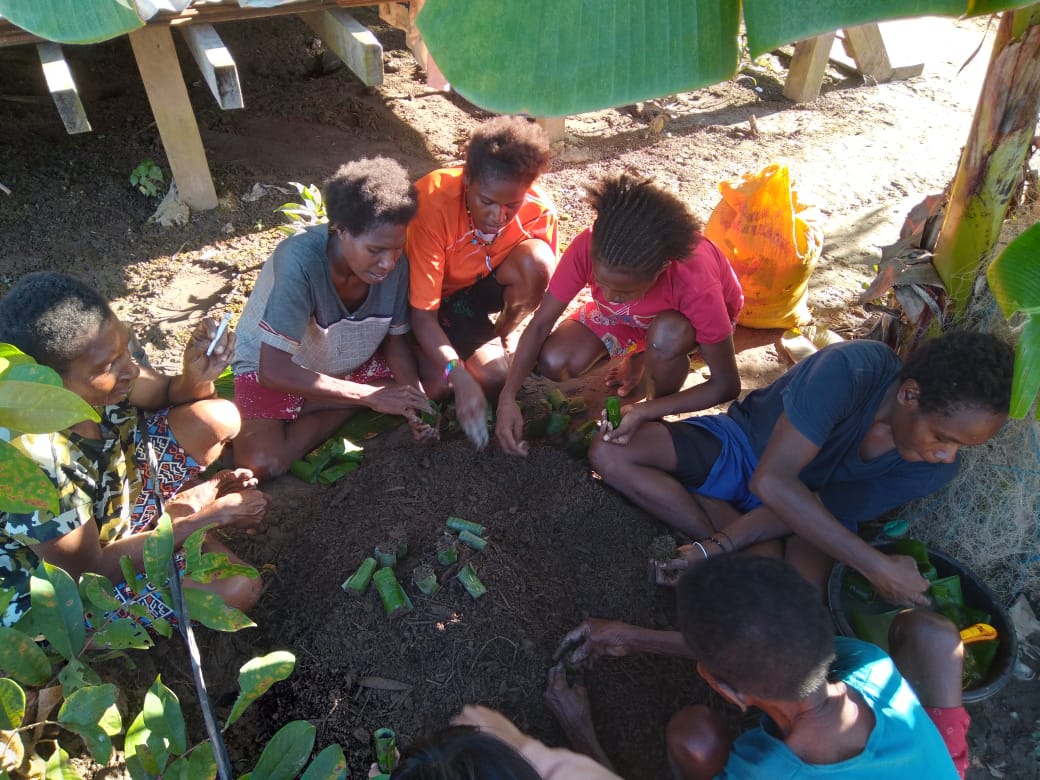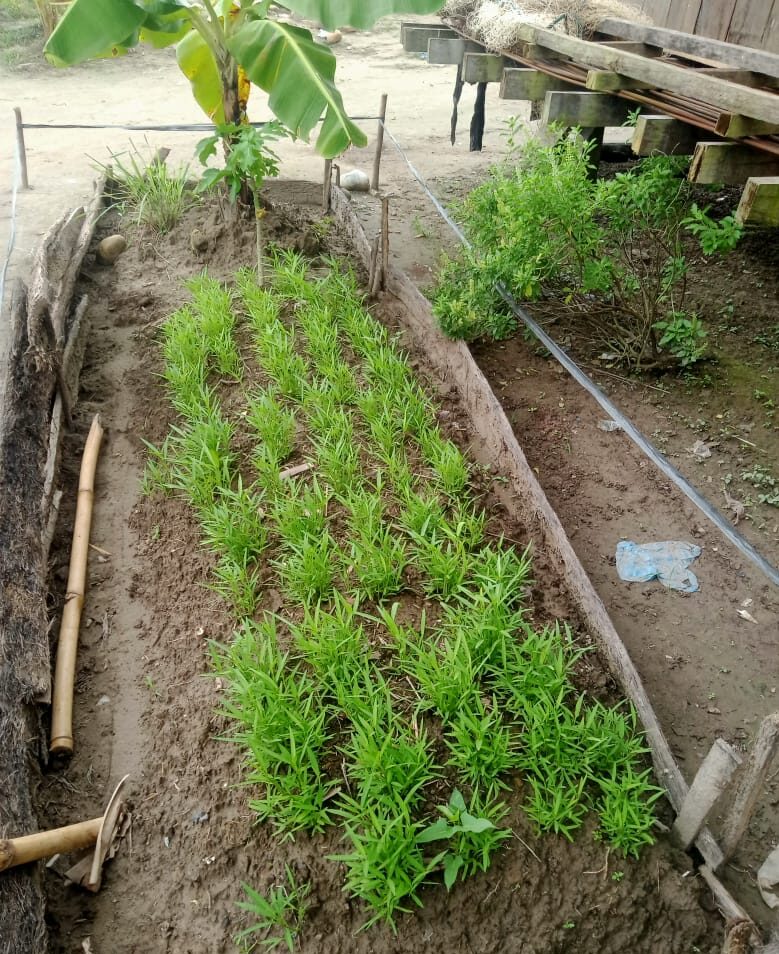“Wow, this is how to make our fertilizer by ourself, easy peasy. This fertilizer is from our nature, for our needs. We have learned not to spend money to buy fertilizer anymore.”
That was Rina’s answer when we asked, “What did Rina think after knowing that there are many natural ingredients in this village that can be used as fertilizer for the plants in our garden?”
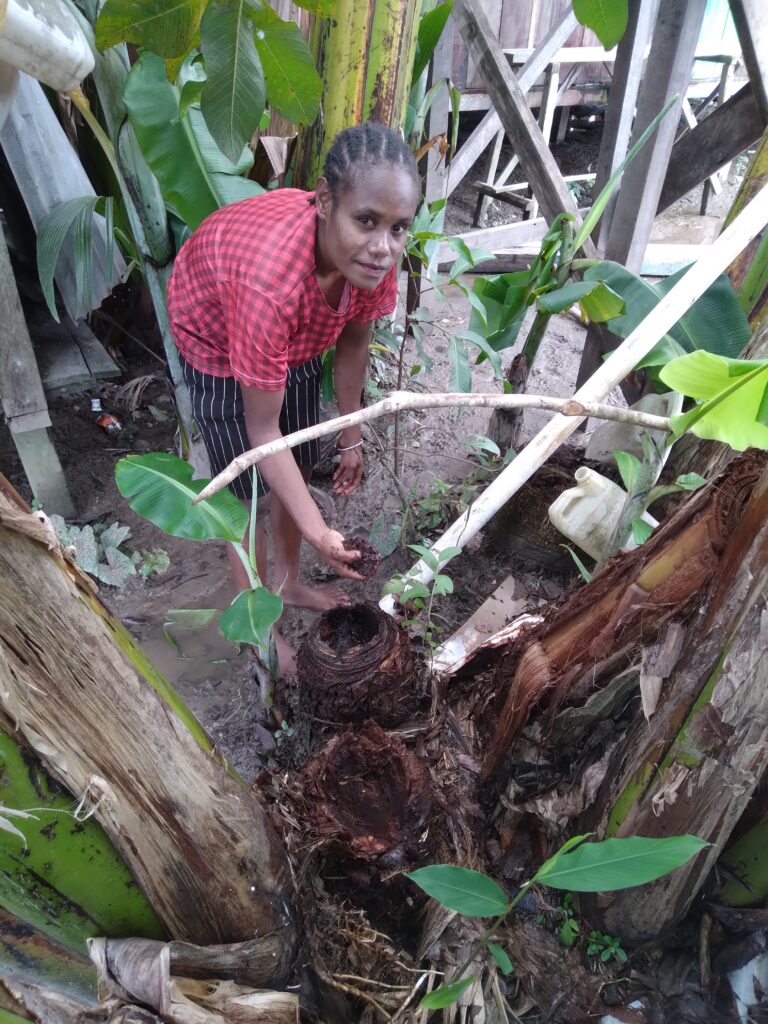
Kasparina Waupuru (22 years old) is a member of the Coastal Field School (SLP) group facilitated by the Blue Forests Foundation (YHB) in Mioko Village, Mimika Tengah District, Mimika Regency, Papua. This young woman’s decision to join and be active in the Coastal Field School activities in Mioko was based on her curiosity to learn and know the process of making organic fertilizer.
Coastal Field School (SLP) was developed by Blue Forests to develop sustainable livelihoods. The Coastal Field School (SLP) approach is based on the philosophy of the Farmer Field School which is directed to develop a critical mindset in the development of livelihoods based on local potential with correct management techniques.
The activity of making organic fertilizer in Mioko Village is one part of Coastal Field School (SLP) learning proposed by the local community, especially by women or mothers. This is because the majority of the people of Mioko Village are active in gardening to meet the economic and domestic needs of the household. Based on experience during gardening, the fulfillment of fertilizer for plantation land is one of the obstacles that are often faced.
So far, people are more accustomed to buying non-organic fertilizers in the city to meet their fertilizer needs during gardening in the village. Dependence on non-organic fertilizers sometimes hampers community plantation cultivation activities. The high price of fertilizer makes people sometimes prefer to ignore their plants.
Responding to these problems, the farming community in Mioko Village, facilitated by Blue Forests, agreed to learn together about how to make and use organic fertilizers. It is hoped that the habit of using plants around the village will be born which can be used as material for processing organic fertilizers. This will gradually reduce the level of community dependence on the use of non-organic fertilizers.
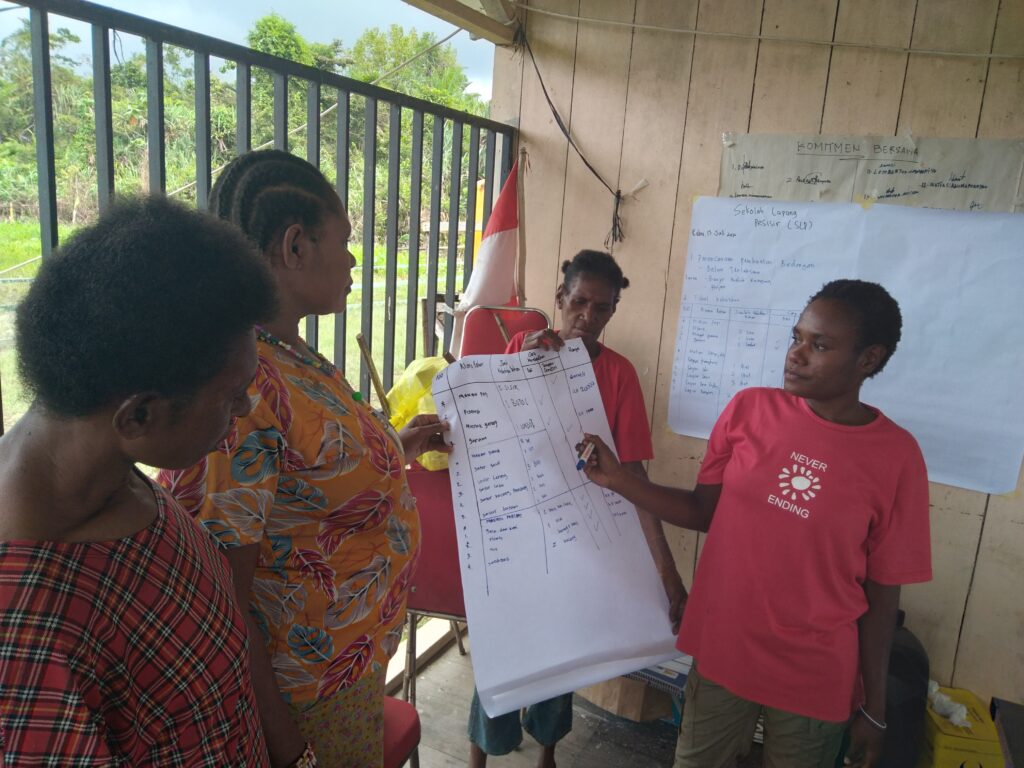
Through a learning series in the Coastal Field School (SLP) group, the learning stages of making organic fertilizers are carried out. Participants are invited to make basic observations by looking at the opportunities for the availability of any type of plants or plants in the village. Then participants were also asked to exchange information with each other. The point is to enrich each other’s knowledge and experience regarding what materials can be used as organic fertilizers.
One form of organic fertilizer that is practiced is solid organic fertilizer. Participants started making the fertilizer by collecting dry leaves and stems of banana trees that were starting to rot. Then all the ingredients are mashed by chopping them using a knife, machete and scissors. The material is then covered and left to rot. After the decomposition process is complete, the organic fertilizer is ready to use. The trick is to mix fertilizer with the soil that is the planting medium.
The Mioko Village community involved in the Coastal Field School group varies quite a bit by age. The range is between 22 to 45 years. The majority of the participants were women or mamas. There are times when men are also involved in the Coastal Field School (SLP) learning process for making organic fertilizers.
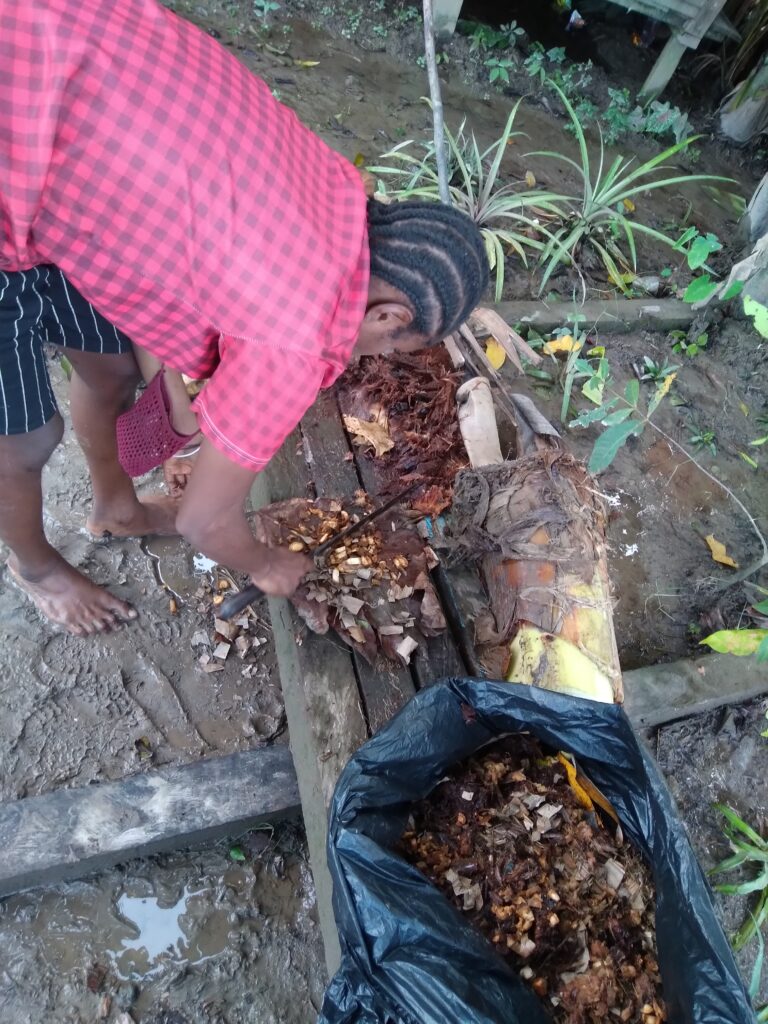
So far, the Coastal Field School (SLP) process for making organic fertilizer has been felt by the participants. Even though it is still on a small scale, at least they have an alternative to providing fertilizer for cultivating vegetables and fruit in the yard around the village. The new knowledge gained from this participatory learning process is quite good in providing provisions for participants to be empowered in creating organic fertilizers to be applied to every type of plant.
Rina is very grateful for the knowledge of making organic fertilizers. Since participating in Coastal Field School (SLP) activities, Rina has been trained to be able to make her own fertilizer and to be able to take advantage of the natural resources around her yard.
“Currently, we can make our own fertilizer, from materials that can be obtained in our own village. We don’t have to spend a lot of money to buy fertilizer from the city anymore,” said Rina sharing her experience in participating in the SLP learning series in her village.

